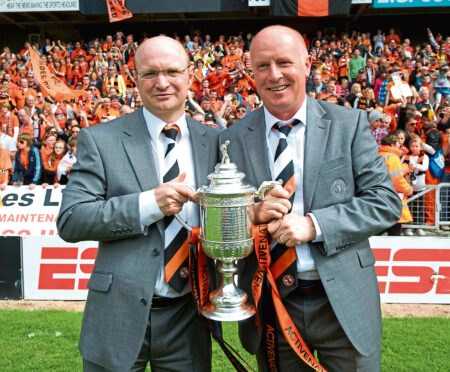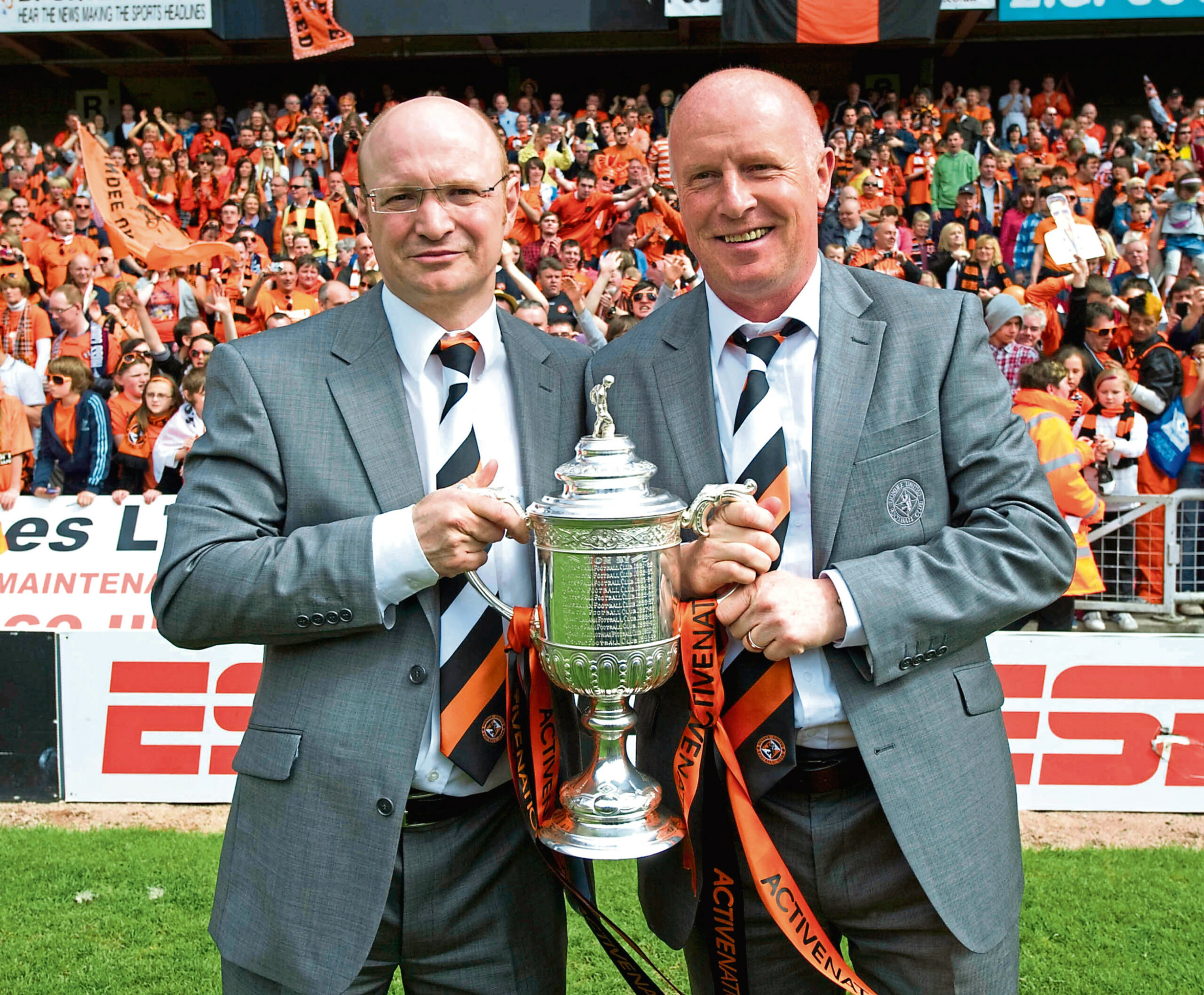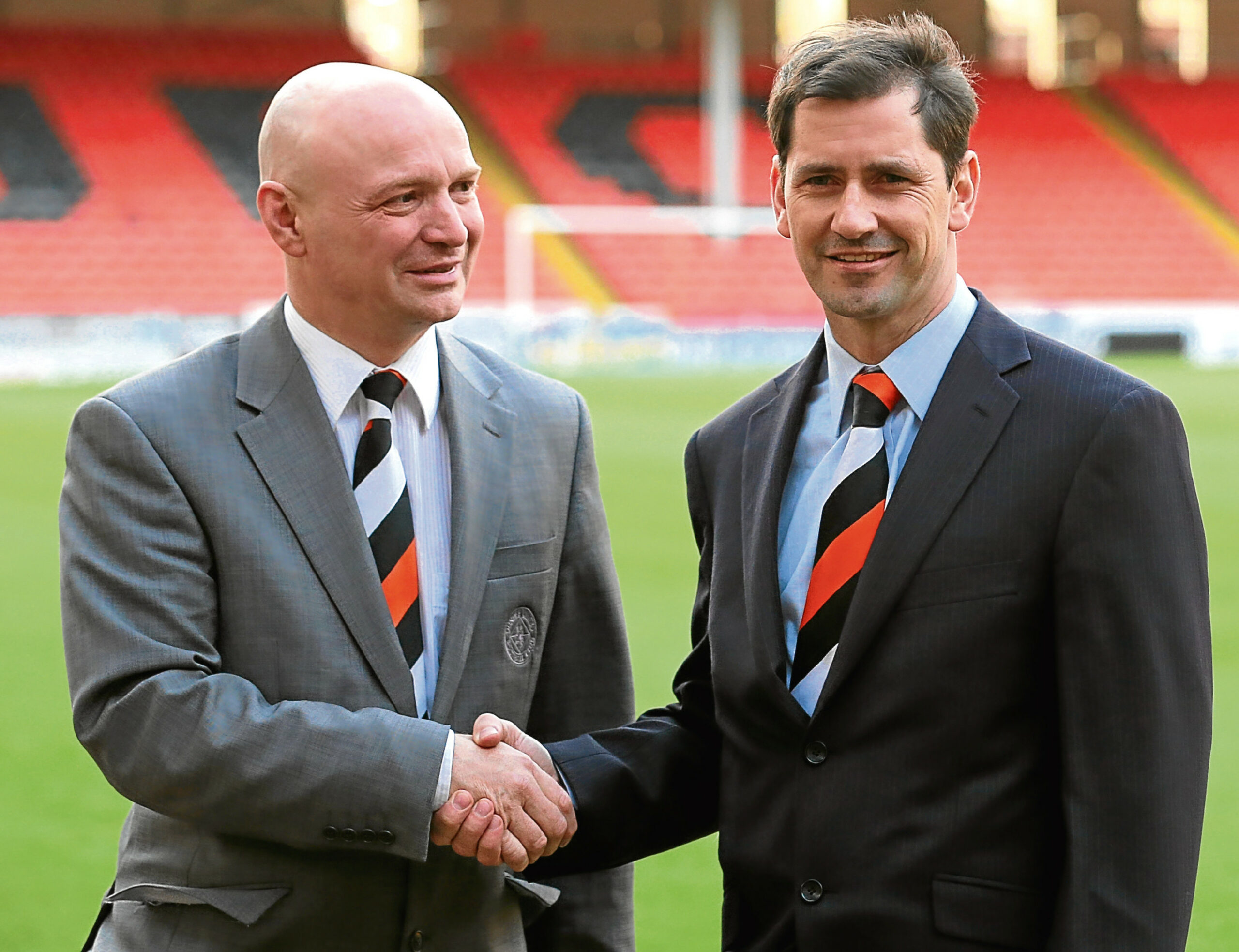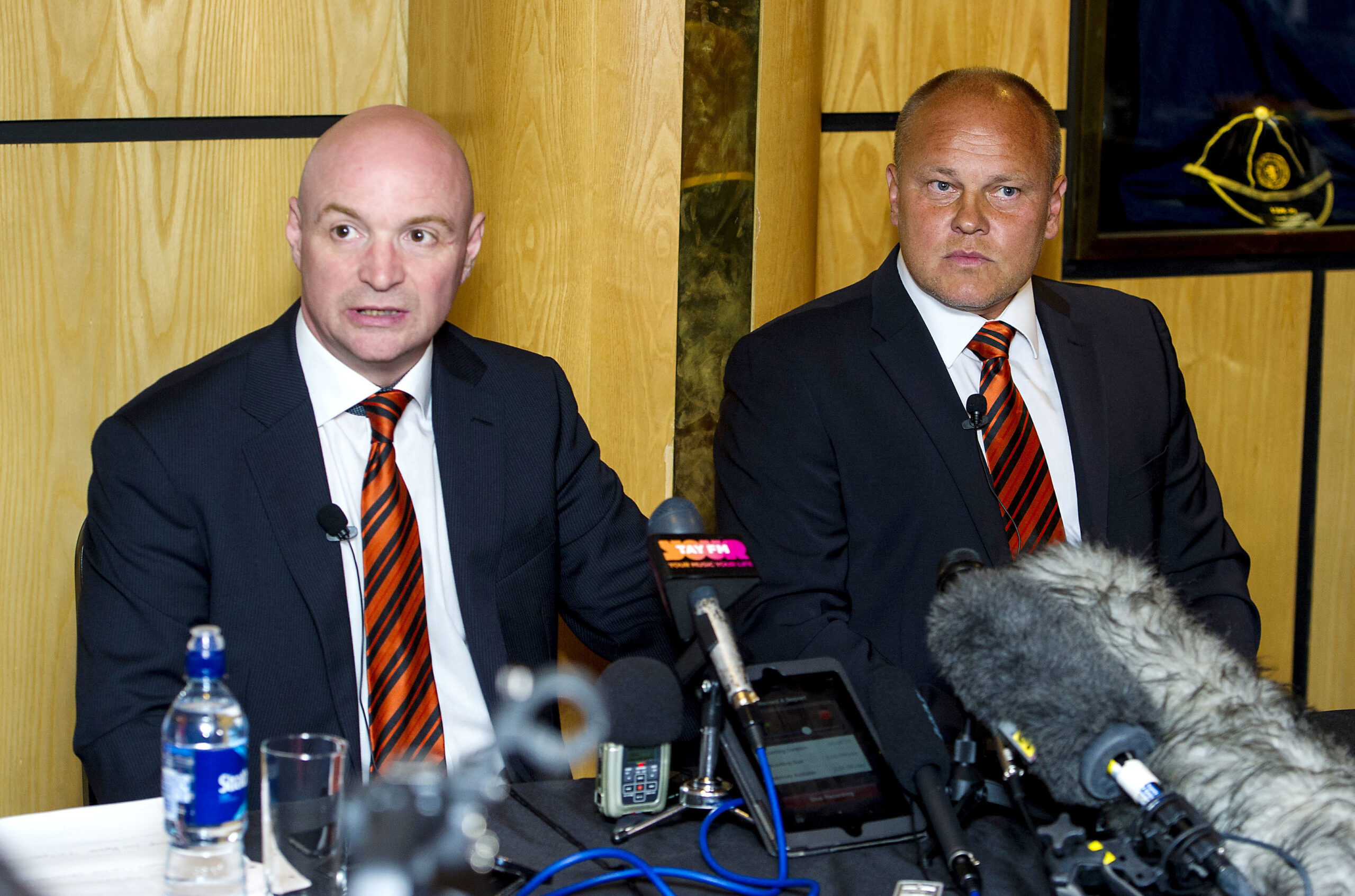In the crazy world of football you can never say never but the news Stephen Thompson has severed all remaining ties with Dundee United by selling his majority shareholding appears to have drawn a line under one of the most eventful periods in the club’s history.
A lot has happened since his late father Eddie was swept to power at Tannadice on the back of a fans’ revolt that finally persuaded legendary former manager and chairman Jim McLean to sell up.
That was back in the autumn of 2002, at a cost of over £1 million, and, in the near 16 years that have followed, it’s hard to recall a prolonged period of absolute calm.
The Thompson era has been a story of toil, tragedy, triumph and ultimately more toil.
Eddie Thompson arrived with the Tangerines in a struggle to hold on to their top-flight status, so there’s an obvious irony his son’s departure comes with them in a battle to regain a place at that level.
Those struggles continued for several seasons and saw manager Alex Smith, Ian McCall and Craig Brewster all depart before the good times were restored.
They came with the arrival of Craig Levein in October 2006 that would bring a sustained period of stability and success on the park that had not been seen for over a decade.
Sadly, by then Thompson senior was fighting against prostate cancer and, as bravely as he battled, he passed away in October 2008 without realising his dream of being at the helm when his beloved United won a major trophy.
Not that they didn’t come close and earlier that year Levein’s side only missed out on lifting the League Cup when they were beaten by Rangers in a penalty shootout after a dramatic final.
As Eddie’s health failed, there was some thought to making his daughter Justine, already a director, the Premier League’s first chairwoman but, by the time of his death, it came as no surprise that it would be son Stephen who took on the reins.
And at first it was more of the same as Levein kept the team in the top six of the league. The new young chairman’s first real test stemmed from that success, when he had to find a replacement for his manager after Scotland came calling for him at Christmas 2009.
After considering a number of candidates and almost appointing Irishman Pat Fenlon, Stephen opted to make assistant manager Peter Houston No 1 for the rest of the campaign.
It proved a masterstroke and would bring about his best day as chairman, in May 2010, when Houston steered United to a second Scottish Cup triumph by comprehensively beating Ross County on a famous afternoon at Hampden.
The success continued for some time after that and, even when Houston quit early in 2013, the appointment of Jackie McNamara soon after looked another shrewd move.
Introducing young talent like Ryan Gauld and John Souttar to the team, he was able to maintain a high league place and reached the final of the 2014 Scottish Cup and did the same in the League Cup the following season.
Both, unfortunately, were lost and by the time of the defeat to Celtic in the League Cup, cracks were appearing.
Stephen’s popularity with the fans took a sizeable hit with the sale of Stuart Armstrong and Gary Mackay-Steven at the end of January 2015.
McNamara was dismissed after a poor start to the 2015/16 league campaign and his replacement, Mixu Paatelainen, followed him out the door after the team were relegated a few months later.
Last year saw boss Ray McKinnon fail to get United back up at the first time of asking, leaving Thompson’s stock with fans at an all-time low.
In almost his last major act as chairman, in October last year, and with the team again struggling in the second tier, he would dismiss McKinnon.
At that point his days also looked numbered and so it proved when, in January, he first announced he would be standing down as chairman at the end of the season, then quickly brought that forward to make his resignation with immediate effect.
Now, to the delight of a section of the support, he’s kept a promise to also sell his shares. They can now move on – and so can he.



